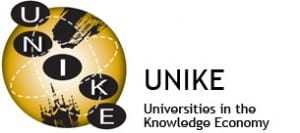Joss Winn recently gave a keynote talk at Newcastle College’s ‘Student as Producer’ conference. You can read the full script of his talk on his blog.
“Newcastle College should be commended for recognising the need to involve students in the governance of your institution. In your own HE Partnership Strategy you state that “meaningful partnership working is reliant upon the equal distribution of democratic power.” You argue rightly that this isn’t just achieved by listening to the so-called ‘student voice’ but by “empowering students to drive and implement change.” And “this will involve redistributing power across our HE communities up to and including HE Academic Board through engaging students in all stages of the decision making process.” My question to you is how do you intend to constitute this form of democracy. You say that you will embed it “throughout all aspects of the HE learning experience” but what constitutional form will that take and how will you hold each other to account? These are not questions unique to your own stated objectives, but are being asked all the time by people who desire democracy in their work as they do in their politics.
The question I am interested in then, is what steps might we take to reconstitute and transform our institutions into member-run, democratically controlled co-operatives? Institutions that enable us to reflect deeply on the conditions of present day knowledge production and truly put Student as Producer into practice?”

